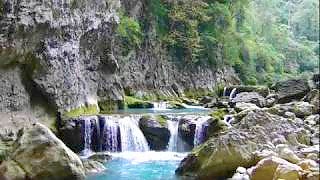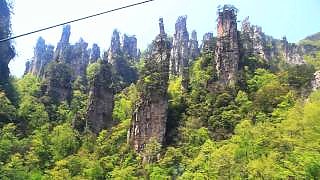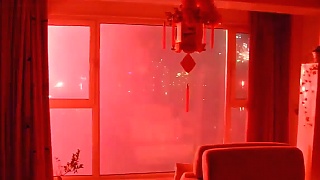With MeetWorld ...
[640],shadow=true,start=,stop=GuiZhou Province visitor guide
Overview
GuiZhou Province, located in the southwestern part of China, is known for its stunning karst landscapes, rich ethnic diversity, and vibrant cultural heritage. The province is a treasure trove of natural beauty and cultural experiences, offering visitors a chance to explore everything from ancient villages to breathtaking mountains and rivers.
Natural Attractions
HuangGuoShu Waterfall
Location: Anshun City.
Highlights: One of the largest waterfalls in China, HuangGuoShu Waterfall is a spectacular sight with its powerful cascades and scenic surroundings. Visitors can explore the waterfall from various viewpoints and even walk behind it for a unique perspective.
Fanjing Mountain
Location: Tongren City.
Highlights: A UNESCO World Heritage Site, Fanjing Mountain is renowned for its unique rock formations, diverse flora and fauna, and spiritual significance. The Red Cloud Golden Summit and the Mushroom Stone are must-see landmarks.
Libo Karst Forest
Location: Libo County.
Highlights: Part of the South China Karst UNESCO World Heritage Site, the Libo Karst Forest features stunning karst landscapes, lush forests, and crystal-clear rivers. The area is ideal for hiking and exploring unique geological formations.
Ethnic Villages and Cultural Experiences
Xijiang Qianhu Miao Village
Location: Leishan County.
Highlights: The largest Miao village in China, Xijiang Qianhu Miao Village offers a deep dive into Miao culture with traditional stilt houses, vibrant festivals, and daily folk performances. It's a perfect place to experience Miao customs and hospitality.
Langde Miao Village
Location: Leishan County.
Highlights: Known for its well-preserved wooden houses and rich cultural heritage, Langde Miao Village offers visitors a chance to witness traditional Miao crafts, such as embroidery and silverwork, and participate in cultural activities.
Zhaoxing Dong Village
Location: Liping County.
Highlights: One of the largest Dong villages in China, Zhaoxing Dong Village is famous for its Drum Towers, Wind and Rain Bridges, and traditional wooden architecture. The village is known for its Dong singing and dance performances.
Outdoor Activities
Hiking and Trekking
GuiZhou offers numerous trails for hiking and trekking enthusiasts. From the karst landscapes of Libo to the sacred peaks of Fanjing Mountain, there are trails suitable for all levels of hikers.
Rafting and Boating
The rivers and lakes of GuiZhou provide excellent opportunities for rafting and boating. The Wujiang River and the Dragon King Cave area are popular spots for water-based activities.
Local Cuisine
GuiZhou cuisine is known for its bold and spicy flavors, often incorporating sour and fermented ingredients. Some must-try dishes include:
- **Sour Fish Soup**: A tangy and spicy fish soup that is a local favorite.
- **Guizhou-style Hot Pot**: Featuring a variety of meats and vegetables cooked in a spicy broth.
- **Miao Sour Soup Fish**: A traditional Miao dish with a unique sour flavor.
- **Sticky Rice Cakes**: A popular snack made from glutinous rice and various fillings.
Accommodation
GuiZhou offers a wide range of accommodation options, from luxury hotels in major cities like Guiyang to traditional guesthouses in ethnic villages. Staying in a local guesthouse provides a more authentic experience and a chance to interact with the local people.
Travel Tips
- Best Time to Visit: The best time to visit GuiZhou is during the spring (March to May) and autumn (September to November) when the weather is mild and pleasant.
- Getting There: GuiZhou is accessible by air, with Guiyang Longdongbao International Airport serving as the main gateway. The province is also well-connected by train and bus.
- Respect Local Customs: When visiting ethnic villages, be respectful of local customs and traditions. Always ask for permission before taking photos of people.
- Pack Accordingly: Bring comfortable walking shoes, a light jacket for cooler evenings, and rain gear if visiting during the rainy season.

 An introduction to GuiZhou province
An introduction to GuiZhou province













